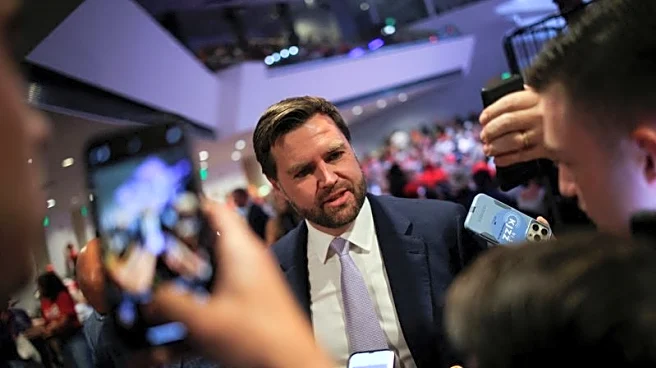What's Happening?
Veteran Democratic strategist James Carville has issued a stark warning to the Democratic Party, emphasizing the urgent need to address the affordability crisis impacting young Americans. Speaking on his 'Politics War Room' podcast, Carville highlighted
the challenges faced by younger generations, including difficulties in purchasing homes and accessing education. He criticized the current economic strategies, which he believes are failing, such as the emphasis on homeownership and college education. Carville argued that these strategies are contributing to a growing economic divide and warned that if not addressed, the situation could worsen significantly. He called for a shift towards economic populism to better support young people struggling to enter the middle class.
Why It's Important?
Carville's comments underscore a critical issue facing the U.S. economy: the growing economic challenges for younger generations. The affordability crisis, marked by rising housing costs and student debt, threatens to widen the economic gap and hinder social mobility. This issue is particularly pressing for the Democratic Party, which needs to appeal to young voters who are increasingly disillusioned with the current economic system. Addressing these concerns could be pivotal for future electoral success and for fostering a more equitable economic landscape. Carville's call for economic populism suggests a potential shift in policy focus that could resonate with a broader base of voters.
What's Next?
The Democratic Party may need to reassess its policy priorities to address the concerns raised by Carville. This could involve re-evaluating housing policies, education funding, and economic strategies to better support young Americans. Political leaders might also consider engaging in broader discussions about economic reform and populism to align with the needs of younger voters. The response from the party and its leaders will be crucial in determining whether these issues are effectively addressed in upcoming elections and policy initiatives.
















